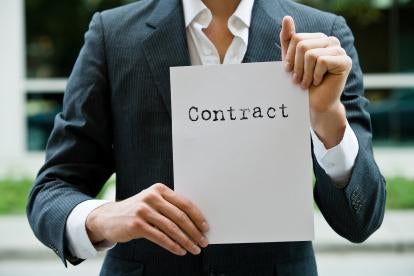On January 5, 2017, as part of its “myth-busting” series, the Office of Federal Procurement Policy (“OFPP”) issued a memorandum encouraging federal agencies to improve their post-award debriefings to increase their “productive interactions with . . . industry partners.” Based on feedback from industry and federal agencies, the OFPP described the numerous benefits of effective debriefings, including affording unsuccessful offerors the opportunity to understand the weaknesses in their proposals and the areas for improvement in future competitions and offering agencies an opportunity to review and improve their evaluation processes. To encourage agencies to take such measures, OFPP recommended that agencies adopt a “debriefing guide” and to consider commonly-perceived myths regarding the debriefing process.
With respect to the debriefing guide, OFPP encouraged agencies to take measures to (1) allow agency personnel to provide an overall general ranking of the debriefed offerors, (2) prepare government personnel on topics that are appropriate (and not appropriate) for discussion during a debriefing, (3) offer template checklists and agendas for government personnel to use in preparing a debriefing, and (4) establish guidance for agency personnel to engage subject matter experts and general counsel in complex procurements.
With respect to the myths surrounding debriefings, the memorandum includes a list of common misconceptions and OFPP responses, such as:
-
Myth: Debriefings result in a greater number of protests. OFPP explained that an effective debriefing that provides necessary information to disappointed offerors can “greatly reduce” the number of protests because protests are often driven by a desire to gather information about the agency’s evaluation process. In particular, agencies should offer “substantive insight into how the source selection officials assessed the proposal’s strengths and weaknesses.”
-
Myth: The presence of an offeror’s attorney at a debriefing signals a protest is imminent. OFPP explained that a disappointed offeror’s decision to bring an attorney to a debriefing does not indicate that a protest is imminent and should not prompt the agency to limit the information that is shared. OFPP noted that offerors may have internal policies that require the presence of an attorney, and that an attorney’s presence should not otherwise prevent the agency from providing “an informative and well planned debriefing.”
-
Myth: All debriefings should be conducted in writing. OFPP explained that “[i]n-person debriefings allow for an open, flexible space where the government and offeror are able to communicate in a productive manner.” Such an effective debriefing also allows for the contracting officials to have the opportunity to secure feedback regarding the solicitation and source selection process.
-
Myth: Companies do not use the information provided in debriefings. OFPP explained that industry “stressed the value” of the information they can derive from a debriefing in improving their future proposals. OFPP explained that understanding the government’s perceived strengths and weaknesses in past proposals helps industry make business decisions and submit more competitive proposals.
It remains to be seen whether agencies will heed OFPP’s urging to improve the quality of debriefings. But the guidance appears to be a positive development for government contractors, as improved debriefings have the potential to increase the effective use of contractor resources. For instance, receiving more information about an agency’s source selection decision may allow a contractor to conclude an agency’s award decision was fair and consistent with the terms of the solicitation, alleviating the need for a protest. Additionally, an informative debriefing could allow contractors to better understand the needs of their government customers, allowing them to make business decisions that respond to their customers’ needs and develop more effective future proposals. Of course, these outcomes would also have a positive impact for agencies, resulting in fewer resources being devoted to responding to protests and receiving more competitive proposals.




 i
i

